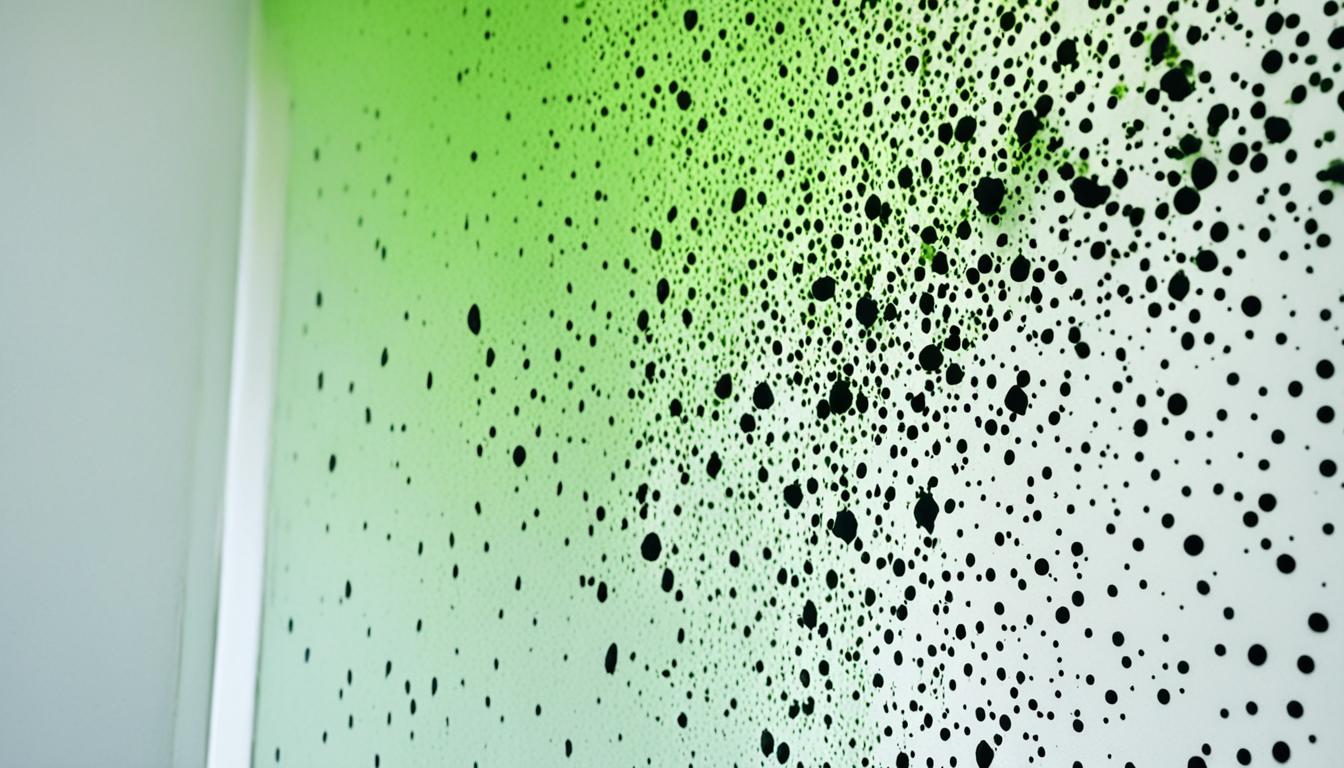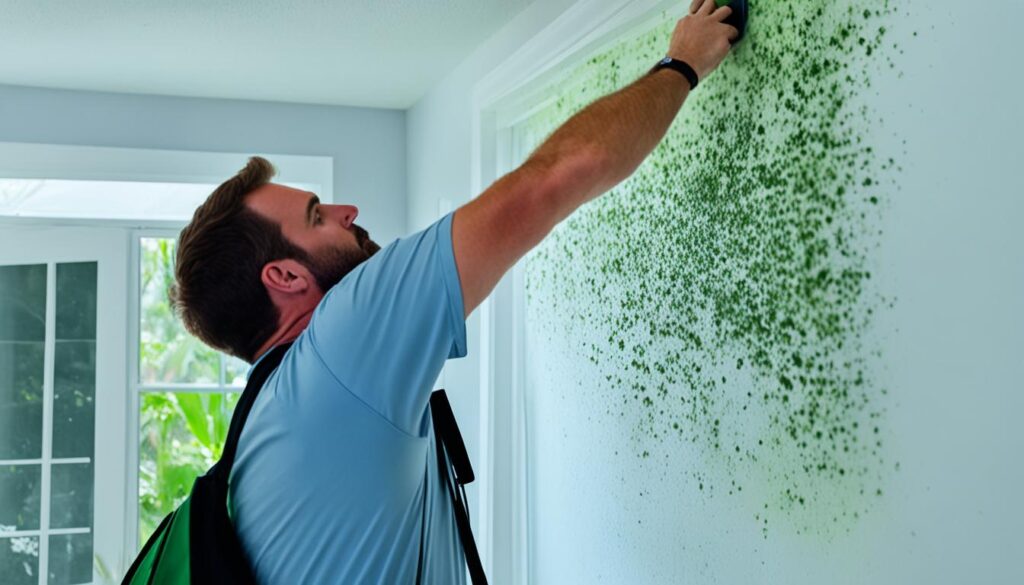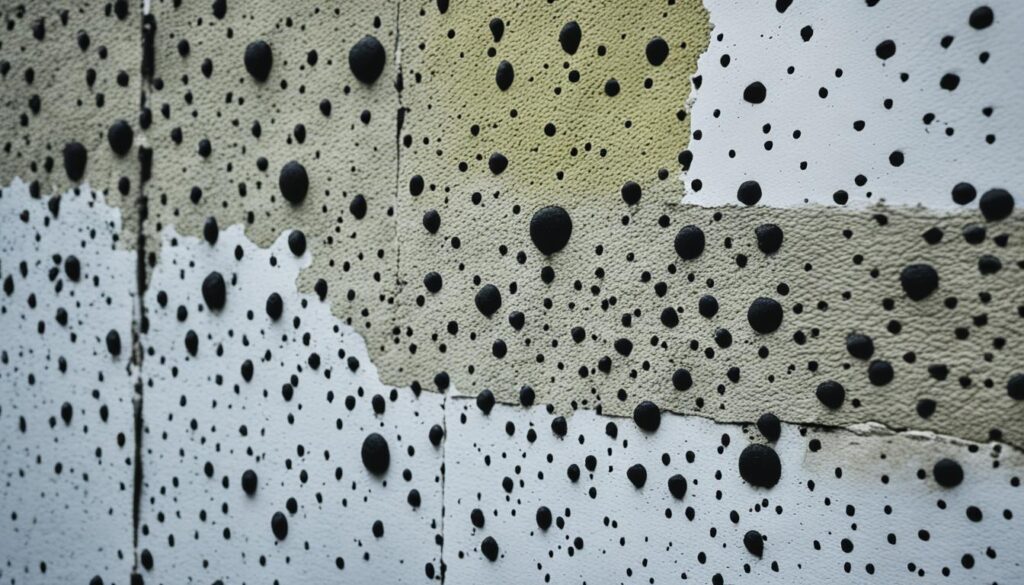
Mildew Mold Florida: Prevention & Remediation Tips
Welcome to our informative guide on mildew mold prevention and remediation in Florida. If you’re a homeowner or property manager in the Sunshine State, it’s crucial to understand how to protect your property from the damaging effects of mold growth. Florida’s warm and humid climate creates the perfect breeding ground for mildew mold, making prevention and remediation strategies essential.
Key Takeaways:
- Understanding the nature of mildew mold and its potential health risks is crucial.
- Implementing effective prevention measures, such as reducing moisture, is key to keeping mold at bay.
- When remediation is necessary, professional assistance and proper containment procedures are essential.
- Take prompt action to address any mildew mold issues and prevent further damage to your property.
- By following these prevention and remediation tips, you can maintain a mold-free environment and protect the well-being of occupants.
Understanding Mildew Mold in Florida
In order to effectively prevent and remediate mildew mold in Florida, it’s crucial to have a clear understanding of its nature, how it thrives in the unique climate of the region, and the potential health risks it presents to occupants of affected buildings.
Mildew mold, also known as mold or fungus, is a type of microorganism that can grow on various surfaces in warm and humid environments. Florida’s hot and humid climate provides an ideal breeding ground for mold, making it a common issue for homeowners and property managers in the state.
Mold is not to be taken lightly. It can cause a range of health problems, from mild allergies to more serious respiratory issues. Prolonged exposure to mold can even lead to infections and chronic illnesses.
“Understanding the growth patterns and behaviors of mildew mold is essential for effective prevention and remediation strategies in Florida.” – Dr. Rebecca Anderson, Environmental Health Specialist
Mold spores are microscopic and can easily float in the air. When they land on damp surfaces, they begin to grow and multiply, forming visible colonies. These colonies release more spores into the air, perpetuating the cycle of mold growth and spreading throughout the affected area.
Common sources of moisture that contribute to mold growth in Florida include high humidity, water leaks, flooding, condensation, and inadequate ventilation. It is important to address these underlying issues in order to prevent mold from taking hold and spreading further.
By taking proactive measures to control moisture and humidity levels, it is possible to minimize the risk of mildew mold in your Florida home or property.
Health Risks of Mildew Mold in Florida
Exposure to mildew mold can have significant health implications, especially for individuals with pre-existing respiratory conditions, weakened immune systems, or allergies. The negative health effects can range from mild to severe, depending on the individual’s sensitivity to mold and the duration of exposure.
- Allergies: Mold spores can trigger allergic reactions, including nasal congestion, sneezing, coughing, wheezing, itchy eyes, and skin rashes.
- Asthma and Respiratory Issues: Mold can aggravate existing respiratory conditions, such as asthma, bronchitis, and chronic obstructive pulmonary disease (COPD), leading to worsening symptoms and increased frequency of attacks.
- Infections: Some types of mold, such as black mold (Stachybotrys chartarum), produce toxic substances called mycotoxins, which can cause infections when inhaled or come into contact with the skin. These infections can affect the respiratory system, skin, eyes, and mucous membranes.
- Immune System Disorders: Prolonged exposure to mold can weaken the immune system, making individuals more susceptible to infections and other health problems.
Preventing Mildew Mold in Florida
Prevention is key when it comes to keeping mildew mold at bay in Florida. By implementing effective measures, you can reduce moisture levels and create an environment that is inhospitable to mold growth. From basic housekeeping practices to more advanced strategies, here are some tips to help you prevent mildew mold in your home or property:
- Control moisture: Maintaining proper moisture levels is crucial in preventing mildew mold. Be diligent in fixing any plumbing leaks or water seepage issues. Ensure proper ventilation in high-moisture areas such as bathrooms and kitchens.
- Monitor humidity: Florida’s humid climate creates an ideal breeding ground for mold. Use a hygrometer to monitor humidity levels in your home, aiming for a range of 30-50%. Consider investing in a dehumidifier to help maintain optimal humidity levels.
- Proper ventilation: Good airflow is essential in preventing mold growth. Keep windows and doors open when weather permits, and use exhaust fans in bathrooms and kitchens to remove excess moisture. Avoid blocking vents or air circulation pathways.
- Regular cleaning: Regularly clean and disinfect areas prone to moisture, such as bathrooms and basements. Use mold-inhibiting cleaners and ensure thorough drying after cleaning.
- Remove organic materials: Mold thrives on organic materials such as wood, paper, and fabric. Avoid storing damp or wet items, and promptly remove any water-damaged materials from your property.
- Inspect and maintain: Conduct regular inspections of your property, both indoors and outdoors, to identify any moisture issues or signs of mold growth. Address any problems promptly to prevent further damage.
By following these prevention tips, you can significantly reduce the risk of mildew mold growth in your Florida home. Remember, early intervention and proactive measures are crucial in maintaining a mold-free environment.

“Preventing mildew mold in Florida requires a comprehensive approach that addresses moisture control, proper ventilation, and regular maintenance. By implementing these strategies, homeowners can protect their properties from the damaging effects of mold.”
Importance of Professional Assessment
While preventive measures play a crucial role in mold prevention, it is important to note that professional assessment and remediation may be necessary in certain situations. If you suspect mold growth or encounter persistent moisture issues despite your best efforts, it is advisable to seek the expertise of a certified mold inspector or remediator. They have the knowledge and tools to properly identify and address mold problems, ensuring the safety and well-being of your property and its occupants.
| Proactive Prevention Strategies | Benefits |
|---|---|
| Controlling moisture | – Reduces the risk of mold growth – Prevents structural damage – Improves indoor air quality |
| Monitoring humidity | – Maintains optimal moisture levels – Creates an inhospitable environment for mold |
| Proper ventilation | – Promotes good airflow and moisture reduction – Prevents condensation and excess humidity |
| Regular cleaning | – Removes mold spores and inhibits growth – Enhances overall cleanliness |
| Removing organic materials | – Eliminates sources of food and habitat for mold – Reduces the likelihood of mold colonization |
| Inspecting and maintaining | – Identifies moisture issues and mold growth early – Allows for prompt remediation and repairs |
Remediation of Mildew Mold in Florida
When it comes to addressing mildew mold issues in Florida, the remediation process is an essential step towards restoring a safe and healthy living environment. Effective mold remediation involves a systematic approach that includes professional assistance, proper containment and removal procedures, and necessary precautions to ensure complete eradication of the mold problem.
Importance of Professional Assistance
Seeking professional assistance is crucial when it comes to remediating mildew mold in Florida. Professional mold remediation experts have the knowledge, experience, and equipment necessary to handle the task efficiently and effectively. They can identify the root cause of the mold growth, determine the extent of the contamination, and implement appropriate remediation techniques.
An expert mold remediation team will conduct a thorough inspection of the affected area to assess the severity of the mold infestation. They will then develop a comprehensive remediation plan tailored to the specific needs of your property. This plan may include strategies such as proper containment of the affected area, disinfection of the surfaces, and HVAC system cleaning to prevent mold spores from spreading.
Containment and Removal Procedures
Proper containment is crucial during the mold remediation process to prevent the spread of mold spores to unaffected areas of your property. This involves the use of physical barriers, negative air pressure systems, and specialized equipment to ensure that the mold is confined to the affected area during the removal process.
The removal of mold-infested materials must be done carefully to minimize the release of airborne mold spores. This may involve the use of personal protective equipment (PPE) by the remediation team and the proper sealing and disposal of contaminated materials according to local regulations to prevent cross-contamination.
Necessary Precautions
During the remediation process, it is essential to take necessary precautions to protect the health of occupants and remediation workers. This includes the use of appropriate respiratory protection, gloves, and other PPE by the remediation team. Adequate ventilation and air filtration systems should also be in place to minimize exposure to airborne mold spores.
Once the remediation is complete, it is essential to address the underlying causes of the mold growth, such as moisture issues or water damage, to prevent future mold problems. Addressing any plumbing leaks, improving ventilation, and controlling humidity levels can help create an environment less conducive to mold growth.

| Steps for Effective Remediation of Mildew Mold in Florida |
|---|
| 1. Conduct a thorough inspection of the affected area to assess the severity of the mold infestation. |
| 2. Develop a comprehensive remediation plan tailored to the specific needs of your property. |
| 3. Implement proper containment measures to prevent the spread of mold spores during the removal process. |
| 4. Use appropriate personal protective equipment (PPE) to ensure the safety of occupants and remediation workers. |
| 5. Remove mold-infested materials carefully, sealing and disposing of them according to local regulations. |
| 6. Address the underlying causes of the mold growth, such as moisture issues or water damage. |
| 7. Improve ventilation and control humidity levels to create a less conducive environment for mold growth. |
Conclusion
In conclusion, it is essential for homeowners and property managers in Florida to have a thorough understanding of how to prevent and remediate mildew mold. By implementing the recommended strategies, you can effectively protect your property from the damaging effects of mold growth.
When it comes to prevention, practicing good housekeeping habits and reducing moisture are key. Regularly cleaning and maintaining your home, ensuring proper ventilation, and promptly addressing any leaks or water damage can help prevent mold growth.
If you do find mold in your Florida property, it is crucial to seek professional assistance. Mold remediation experts have the knowledge and equipment to safely remove the mold and restore your property to a mold-free state. Remember, mold can be harmful to both your health and the integrity of your property, so it’s important to take prompt action.
By being proactive in preventing and addressing mildew mold in Florida, you can create a safe and healthy environment for yourself and your family. Don’t let mold take hold in your property – take the necessary steps to keep it at bay and ensure the long-term well-being of your home.




